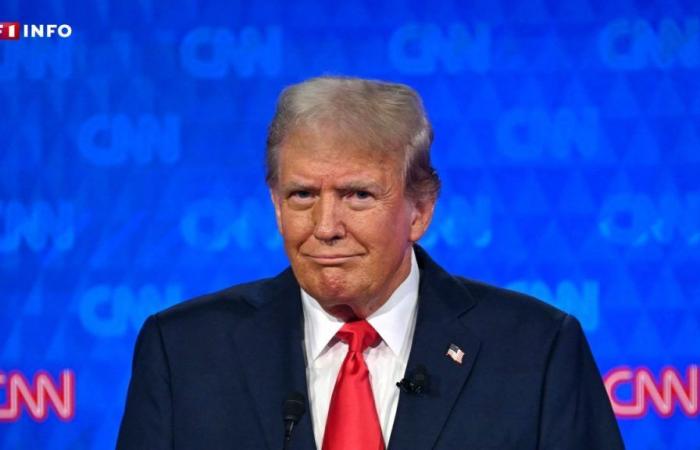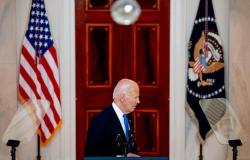The US Supreme Court on Monday sent back to lower courts the question of Donald Trump’s criminal immunity as a former president.
A decision that further delays the holding of his federal trial in Washington concerning his role in the attack on the Capitol in 2021.
This choice suits the affairs of the Republican, vying for a second term.
Follow the full coverage
Capitol assault: Donald Trump at the center of the “plot”
The sky is clearing a little more for Donald Trump. The Republican, whose campaign has regained color after his debate Thursday against Joe Biden, now sees the judicial horizon clearing: the Supreme Court – with a conservative majority – has sent back to the lower courts the question of his criminal immunity as a former president. A decision that delays a little more the holding of his federal trial in Washington, four months before the presidential election.
By the voice of the six conservative judges against that of the three progressives, the Court considers this Monday that “The President enjoys no immunity for his unofficial acts” but that he “is entitled to at least a presumption of immunity for his official acts”. Unsurprisingly, the main person concerned welcomed this decision, “a great victory for our democracy and our Constitution”. The Republicanthinks he is above the law”for its part, accused Joe Biden’s campaign team on Monday. According to the latter, this “does not change the facts (…): Donald Trump snapped after losing the 2020 election and encouraged a mob to overturn the results of a free and fair election.”
Trials postponed one after the other
With this choice, the Supreme Court temporarily eases the Republican’s judicial agenda. She had already acted in this way when, after announcing on February 28 that she was taking up the question of her immunity, she scheduled the debates almost three months later.
During the debates, while the judges were generally skeptical of the absolute immunity claimed by the Republican candidate, several, particularly among conservatives, insisted on the long-term repercussions of their decision. “We are writing a rule for posterity“, observed Neil Gorsuch, referring to the unprecedented nature of the question.
-
Read also
United States: Supreme Court takes up the question of Donald Trump’s criminal immunity
Targeted by four separate criminal proceedings, Donald Trump is doing everything possible to go to trial as late as possible, at least after the presidential election. He was found guilty on May 30 by the New York courts of “aggravated false accounting to conceal a conspiracy to pervert the 2016 election”. His sentence will be pronounced on July 11. But this first criminal conviction, unprecedented for a former American president, also risks being the only one before the vote.
Through numerous appeals, Donald Trump’s lawyers have in fact managed to postpone until further notice the other trials, at the federal level for withholding classified documents after he left the White House and before the courts in the key state of Georgia for electoral interference in 2020. So many trials, which may soon be ancient history: if he were re-elected, Donald Trump could, once sworn in in January 2025, order the cessation of federal proceedings against him.






